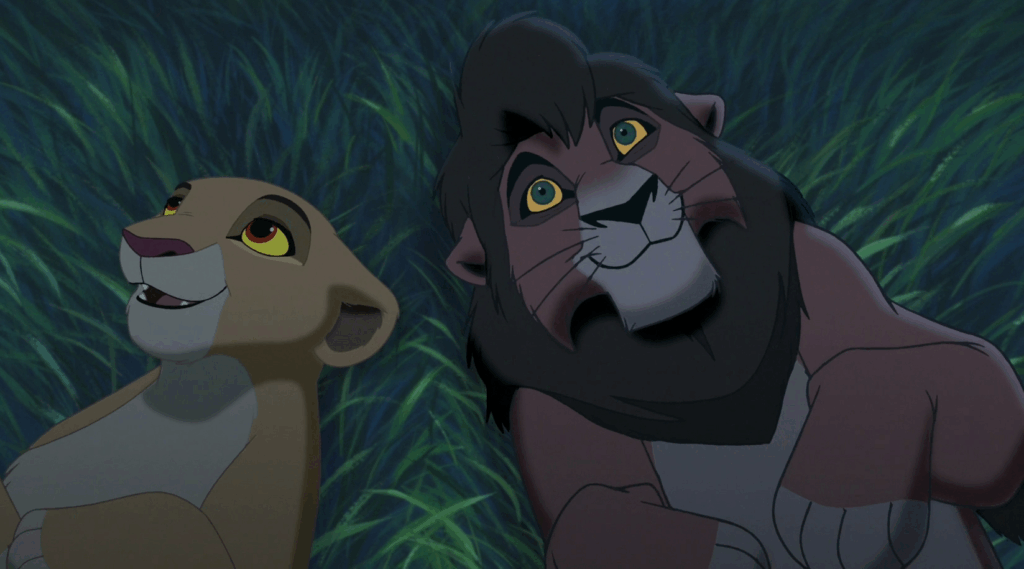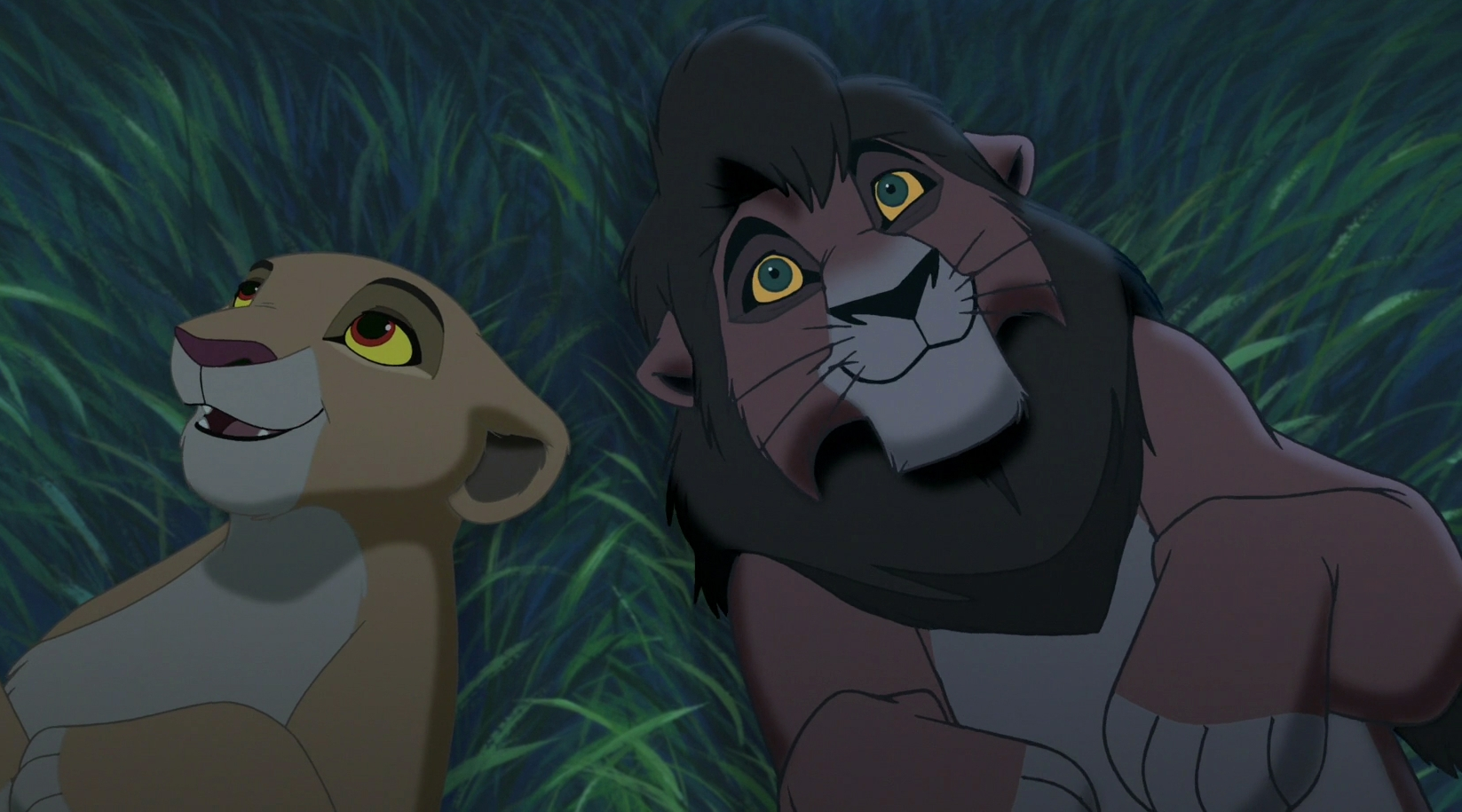
Kovu and Scar: Examining the Parallels and Differences in The Lion King Legacy
The legacy of The Lion King extends far beyond its initial release, captivating audiences with its timeless themes of family, responsibility, and the struggle between good and evil. Two characters who embody this struggle, albeit in distinct ways, are Scar and Kovu. While Scar is the iconic villain of the original film, Kovu emerges as a complex character in The Lion King II: Simba’s Pride, grappling with a destiny shaped by Scar’s shadow. This article will delve into the parallels and differences between Kovu and Scar, exploring their motivations, actions, and ultimately, their places within the Pride Lands.
The Shadow of Scar: Shared Origins
Both Kovu and Scar are defined, at least initially, by their connection to the throne and their outsider status. Scar, born with the name Taka, harbored resentment towards his brother Mufasa, the rightful heir. This resentment festered, ultimately leading to Scar’s betrayal and usurpation of the throne. Kovu, on the other hand, is not directly related to Scar but is chosen by Zira, a devoted follower of Scar, to be his successor. Zira indoctrinates Kovu from a young age, instilling in him a desire to avenge Scar and claim the Pride Lands for the Outlanders. This shared origin, tied to Scar’s ambition and legacy, creates a foundation for understanding their characters.
One key similarity lies in the manipulation they both experience. Scar manipulates the hyenas, promising them a better life in exchange for their loyalty and assistance in his coup. Zira, in turn, manipulates Kovu, using him as a pawn in her vengeful plan. Both Scar and Zira exploit the vulnerabilities and desires of others to achieve their own selfish goals. This manipulation highlights a recurring theme in The Lion King: the corrupting influence of power and the dangers of unchecked ambition.
Divergent Paths: Morality and Redemption
Despite their shared origins, Kovu and Scar diverge significantly in their moral compass and ultimate destinies. Scar is portrayed as inherently evil, driven by a lust for power and a complete disregard for the well-being of others. He is manipulative, deceitful, and ultimately responsible for Mufasa’s death and the devastation of the Pride Lands. Scar’s actions are motivated solely by self-interest, and he shows no remorse for the suffering he inflicts. Kovu, however, possesses a capacity for good that Scar lacks.
Kovu’s character arc is defined by his internal conflict. He is torn between his loyalty to Zira and his growing affection for Kiara, Simba’s daughter. As Kovu spends more time with Kiara, he begins to question Zira’s teachings and the validity of her hatred. He witnesses the love and compassion within the Pride Lands, contrasting sharply with the bitterness and resentment of the Outlands. This internal struggle allows Kovu to develop a sense of empathy and ultimately choose a different path than the one laid out for him by Zira.
The concept of redemption is central to Kovu’s character. He actively seeks to break free from Scar’s shadow and prove himself worthy of Kiara’s love and Simba’s trust. Kovu‘s willingness to change and embrace a new perspective distinguishes him from Scar, who remains steadfast in his villainy until his demise. This difference underscores the importance of choice and the potential for even those born into darkness to find their way towards the light.
Leadership Styles: Tyranny vs. Unity
The leadership styles of Kovu and Scar further highlight their contrasting personalities. Scar rules through fear and intimidation, exploiting the hyenas and neglecting the needs of the Pride Lands. His reign is marked by famine, despair, and a complete breakdown of the natural order. Scar’s leadership is characterized by tyranny and a lack of empathy for his subjects. In contrast, while Kovu is initially presented as a potential successor to Scar’s tyrannical rule, he ultimately rejects this path.
Kovu, inspired by Simba’s leadership and his love for Kiara, embraces a vision of unity and cooperation. He helps bridge the gap between the Pride Landers and the Outlanders, fostering understanding and acceptance. Kovu’s leadership style is based on empathy, compassion, and a commitment to the well-being of all members of the pride. This shift in leadership style reflects the film’s message of reconciliation and the importance of overcoming prejudice.
Symbolism and Themes
Both Kovu and Scar serve as symbolic representations of various themes within The Lion King. Scar embodies the dangers of unchecked ambition, resentment, and the corrupting influence of power. He represents the darkness that can consume individuals and communities when left unchecked. Kovu, on the other hand, symbolizes the potential for redemption, the power of love to overcome hatred, and the importance of challenging preconceived notions. He represents the hope for a brighter future and the possibility of breaking free from the cycle of violence and prejudice.
The relationship between Kovu and Scar also explores the theme of nature versus nurture. While Kovu is raised to be Scar’s successor, his inherent goodness and his exposure to the values of the Pride Lands allow him to overcome his upbringing. This suggests that while environment plays a significant role in shaping individuals, their inherent nature and their capacity for choice ultimately determine their destinies. The contrast between Kovu and Scar underscores the importance of making conscious choices and rejecting the path of hatred and violence.
The Impact on Simba
Simba’s interactions with both Kovu and Scar are crucial to his development as a leader and a father. Scar’s betrayal profoundly impacts Simba, leading to his exile and his initial reluctance to embrace his responsibilities as king. Scar serves as a constant reminder of the darkness that lurks within the Pride Lands and the importance of vigilance in protecting his kingdom. [See also: The Lion King: Simba’s Journey to Kingship] Simba’s initial distrust of Kovu stems from his past experiences with Scar. He struggles to accept Kovu, fearing that he will follow in Scar’s footsteps and betray the Pride Lands. However, through Kiara’s love and Kovu’s actions, Simba eventually learns to overcome his prejudice and embrace Kovu as a member of the pride. This journey of forgiveness and acceptance is essential to Simba’s growth as a leader and a father.
Analyzing Kovu’s Character Development
To truly appreciate the difference between Kovu and Scar, it’s essential to analyze Kovu’s character development. He begins as a loyal follower of Zira, completely indoctrinated in her hatred of Simba and the Pride Landers. However, his interactions with Kiara begin to chip away at his preconceived notions. He witnesses the beauty and harmony of the Pride Lands, contrasting sharply with the barren and desolate Outlands. He experiences genuine kindness and compassion from Kiara and her friends, challenging the narrative of the Pride Landers as enemies.
Kovu’s internal conflict intensifies as he falls in love with Kiara. He is torn between his loyalty to Zira and his growing affection for Kiara. He realizes that he cannot fulfill his mission of avenging Scar without betraying Kiara and destroying the peace that she represents. This internal struggle culminates in Kovu’s decision to defy Zira and choose love over hatred. His act of defiance marks a turning point in his character development and solidifies his transformation from a potential villain into a hero.
Scar’s Enduring Legacy
Despite his defeat, Scar’s legacy continues to cast a shadow over the Pride Lands. His actions have long-lasting consequences, shaping the lives of Simba, Kiara, and Kovu. Scar’s betrayal serves as a cautionary tale, reminding the Pride Landers of the dangers of unchecked ambition and the importance of vigilance in protecting their kingdom. [See also: The Lion King: Unpacking Scar’s Villainy] Even after his death, Scar’s influence persists through Zira and her followers, who remain committed to avenging him and reclaiming the Pride Lands. This enduring legacy highlights the power of hatred and the importance of actively working towards reconciliation and understanding.
Conclusion: Kovu and Scar – Two Sides of the Same Coin?
In conclusion, while Kovu and Scar share a connection through Scar’s legacy and their initial outsider status, they ultimately represent two distinct paths. Scar embodies the darkness of unchecked ambition and the destructive power of hatred, while Kovu embodies the potential for redemption and the transformative power of love. Their contrasting characters highlight the importance of choice, the potential for change, and the enduring power of hope. Kovu‘s journey from a potential villain to a hero serves as a powerful reminder that even those born into darkness can find their way towards the light. The story of Kovu and Scar adds depth and complexity to the Lion King universe, prompting reflection on the themes of good versus evil, nature versus nurture, and the enduring legacy of the past.

